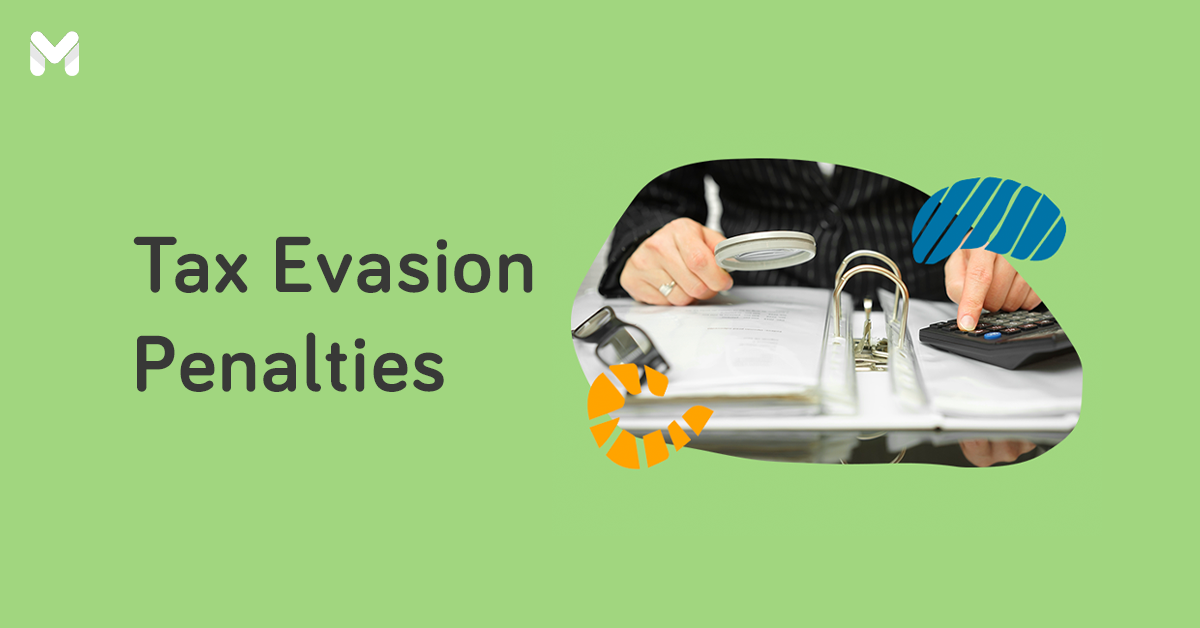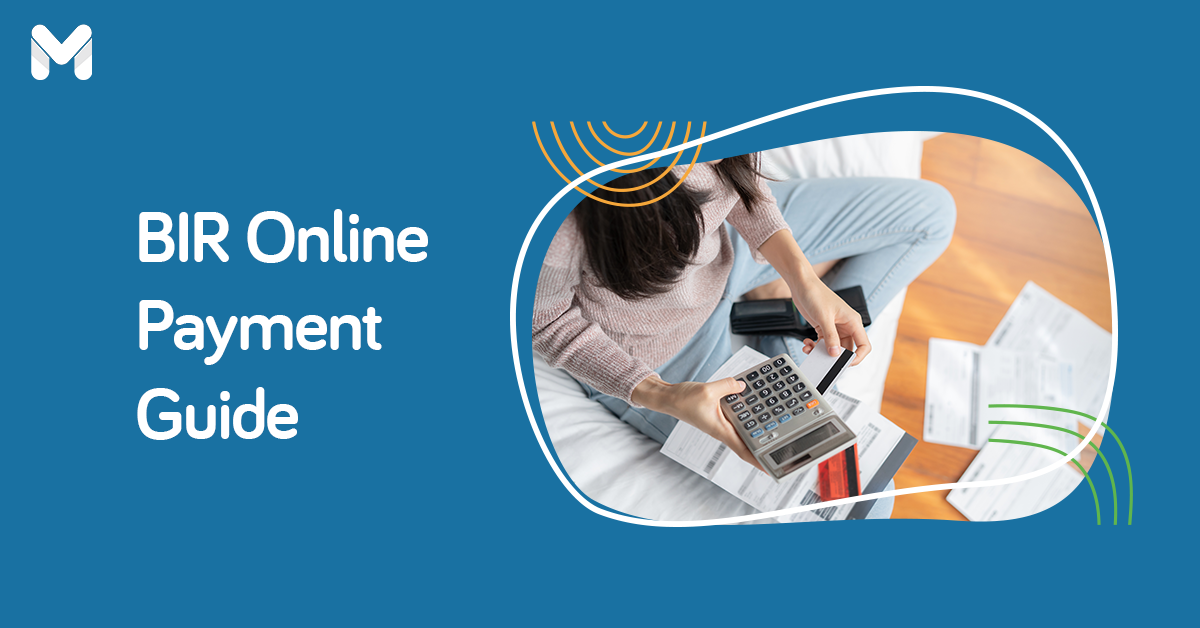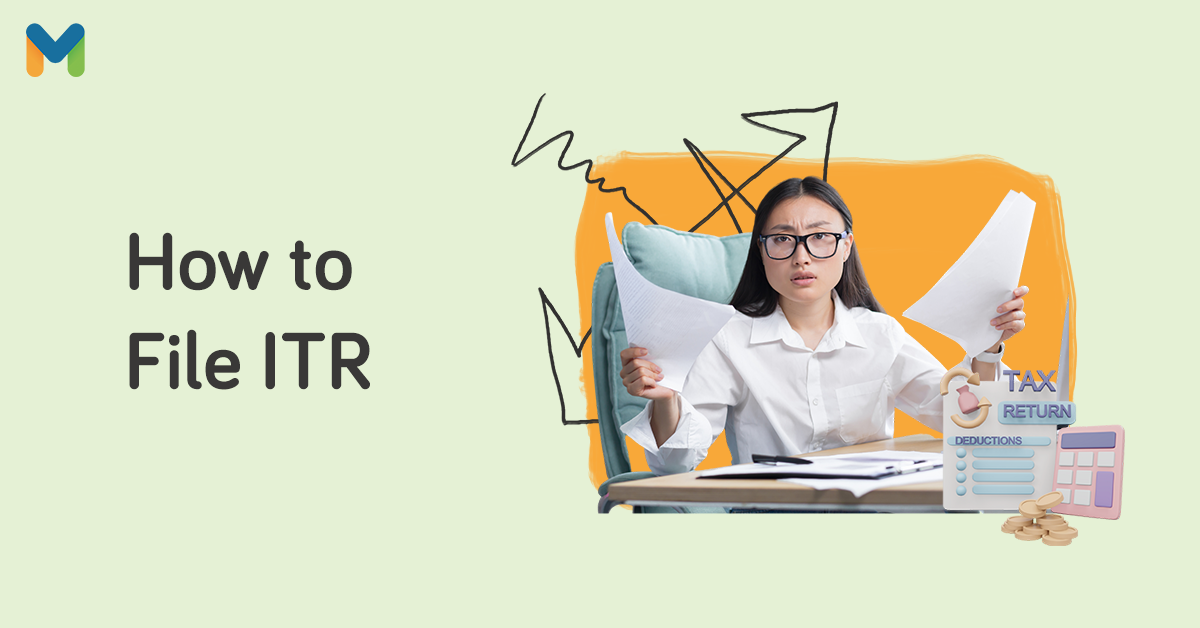Did you know that the Philippines has one of the highest tax rates in Southeast Asia?[1] Our tax system is one of the least friendly to taxpayers in the region. But don't let this fact discourage you from paying the right amount of taxes.
However, even for a person who is fond of numbers, taxation involves an overwhelming amount of information, and computations may still be exhausting and complicated. Even Albert Einstein's accountant reportedly quoted Einstein as saying that the hardest thing in the world to understand is the income tax.
But you don’t have to be a CPA or math whiz to know what taxes in the Philippines entail. Apart from filing and paying taxes, it’s also important to know the types of taxes in the Philippines you must pay, why you have to pay them, and where they go. Here are the basics of taxes in the Philippines.
What are Taxes in the Philippines?

Tax is a fee that people and entities need to pay to the government to fund various social services and infrastructure crucial for nation-building and economic growth.
The National Internal Revenue Code (Tax Code)[2] lays down the rules on taxation in the Philippines. It identifies who should pay taxes and the types of taxes that should be collected from taxpayers.
The Philippine tax law has undergone several reforms. The most recent one is the Republic Act 10963 or the Tax Reform for Acceleration and Inclusion (TRAIN) Act,[3] which took effect in 2018.
What are the Types of Taxes in the Philippines?

Generally, taxes in the Philippines can be classified into three types: national, local, and special taxes.
📌 National Taxes
National taxes in the Philippines[5] are fees that the BIR collects from taxpayers all over the Philippines. Here are the national taxes imposed on different incomes and transactions in the Philippines, as defined by the BIR:
- Capital gains tax – Tax imposed on the gains presumed to have been realized by the seller from the sale, exchange, or other disposition of capital assets in the Philippines, including pacto de retro sales and other forms of conditional sale
- Documentary stamp tax (DST) – Tax on documents, instruments, loan agreements, and papers evidencing the acceptance, assignment, sale, or transfer of an obligation, right, or property incident to it
- Donor’s tax – Tax on a gift or donation in which both the sender and recipient are alive at the time of the transfer
- Estate tax – Tax on the right of the deceased person to transmit estate[6] to lawful heirs and beneficiaries at the time of death. It is imposed on the privilege of transmitting property upon the death of the owner
- Excise tax – Tax on the production, sale, or consumption of goods in the Philippines
- Income tax – Tax on a person’s or business’ income or profit, less deductions authorized by law
- Percentage tax – A business tax imposed on the following taxpayers:
- Non-VAT-registered individuals or corporations that sell or lease goods and services with gross annual sales or receipts not exceeding ₱3 million
- Persons who lease residential units where the monthly rental per unit exceeds ₱15,000.00 but the total rental during the year does not exceed ₱3 million
- Persons engaged in the industries/transactions listed in the Tax Code
- Value-added tax (VAT) – A sales tax on consumption imposed on the sale, lease, or importation of goods, properties, and services in the Philippines, which may be passed on to the buyer or consumer
- Withholding tax – Tax withheld from an individual’s income to promote tax compliance and prevent tax evasion
- Other taxes that the BIR imposes and collects
📌 Local Taxes
Local taxes in the Philippines[7] are involuntary fees that local government units (LGUs) collect from their constituents to finance activities and projects for their city or municipality.
Here are the local taxes that people and businesses pay in the Philippines:
- Basic real property tax – Tax on the value of real properties such as houses, lands, buildings, etc.
- Business of printing and publication tax – Tax imposed on businesses that involve printing and publication
- Franchise tax – Tax imposed on a franchise business
- Sand, gravel and other quarry resources tax – Tax on the fair market value of ordinary stones, sand, gravel, earth, and other quarry resources extracted from public lands or public waters within the province
- Professional tax – Tax imposed on professionals such as lawyers, doctors, and engineers
- Amusement tax – Tax imposed on cinemas, theaters, concert halls, circuses, and other amusement venues
- Annual fixed tax for delivery trucks and vans – ₱500 fee for every truck or van used to deliver soft drinks, liquors, or cigarettes within the province
- Local business tax – Tax imposed by municipalities on different types of businesses within their jurisdiction
- Barangay tax – Tax imposed on stores or retailers with annual gross sales of up to ₱50,000 in cities or up to ₱30,000 in municipalities
- Community tax – Tax imposed on individuals and corporations within the jurisdiction of a city or municipality
📌 Special Taxes
In addition to national taxes and local taxes, there are special taxes[8] that must be paid during certain transactions or purchases:
- Motor Vehicle User’s Charge (MVUC) – An annual fee charged on every application for vehicle registration
- Travel tax – An airport fee imposed on Filipino citizens, foreign residents, and non-resident foreigners (who have stayed in the country for more than a year) who are leaving the Philippines
- Head tax – Tax imposed on foreigners staying in the Philippines for at least 60 days, with permanent residency status in the country, and applying for Re-entry Permit and paid to the immigration officer when entering the country
- Charges on forest products – Tax on the privilege of exploiting the forest resources in the Philippines
- Energy consumption tax – Tax on electric power consumption over 650 kWh of each residential customer
The Importance of Different Types of Taxes in the Philippines
What is the purpose of taxation? The Philippine government relies on tax revenue to fund its operations and finance its development projects. Being the lifeblood of the government, tax revenue is a critical part of the country's economic and fiscal policy.
Aside from the revenue that taxes generate, they also help promote economic stability and growth. By imposing taxes on goods and services, the government can discourage unnecessary consumption and production and ensure that resources are used more efficiently.
The Philippines uses taxes to redistribute income and wealth in society. Progressive taxation systems, for instance, tax higher incomes at higher rates to reduce inequality.
Similarly, taxes on luxury goods or "sin" products like tobacco and alcohol help raise revenue while also discouraging their consumption.
Benefits of Paying Taxes in the Philippines
Why do we pay taxes in the Philippines? Where do taxes go? You've probably asked yourself these questions countless times in the past, especially when it's time to part with your hard-earned money to pay your taxes. But here are reasons why we pay tax in the Philippines:
👉 Contribute to the Country's Development

Lofty as it may sound, paying taxes means helping in the government’s nation-building efforts. Your money goes toward building roads, bridges, airports, mass transport systems, classrooms, public hospitals, and other structures that will allow Filipinos to travel, study, do business, and get healthcare services more efficiently.
Taxes also finance basic social welfare services, the Pantawid Pamilyang Pilipino Program or 4Ps, disaster response, and other essential government services.
The salaries of government employees such as public school teachers and government healthcare professionals also come from taxes.
Taxes fund public expenditures in the Philippines. But the most important thing to point out here is that you—the taxpayer—will ultimately benefit from the different government programs financially supported by the taxes you pay.
👉 Secure Income Documents
Credit card and personal loan applications require an income tax return (ITR) that reflects and serves as the borrower's proof of income. Having this all-important financial document raises your chance of a credit card or loan approval.
An ITR may also be used as a requirement for visa applications. So if you plan to travel to any country that requires a visa for Filipinos, you should keep a copy of your ITR.
To get an ITR, you need to file and pay your taxes to the Bureau of Internal Revenue (BIR). For employees, their employer files and withholds taxes for them. Freelancers and employers must take care of tax filing and payment on their own.
👉 Avoid Committing Tax Evasion
Failure to pay tax in the Philippines is against the law and results in serious and costly consequences. There is a penalty for attempting to evade or defeat taxes in the Philippines.
The BIR issued Revenue Regulations No. 13-2021,[4] which provides that if convicted of tax evasion, a taxpayer must pay a fine of not less than ₱500,000 but not more than ₱10 million.
Also, imprisonment of not less than six years but not more than 10 years will be imposed on any person who willfully attempts, evades, or defeats any tax imposed under the Tax Code. The fine and penalty are in addition to other penalties provided by law.
The Department of Justice (DOJ) and the BIR initiated the Run Against Tax Evaders (RATE) Program that investigates and prosecutes individuals and/ or entities engaged in tax evasion and other criminal violations of the Tax Code.
Who Pays Taxes in the Philippines?

Under the Tax Code, the following individuals and corporations are required to pay taxes in the Philippines:
- Filipino citizens living in the Philippines and earning income from sources within and outside the country
- OFWs, Filipino immigrants, and other non-resident citizens with income from sources within the Philippines
- Resident and non-resident foreigners earning income from sources within the Philippines
- Domestic corporations earning income from sources within and outside the Philippines
- Foreign corporations with income from sources within the Philippines
What Government Agencies Collect Different Types of Taxes in the Philippines?
When talking about taxes, many immediately think of the BIR as the only agency that collects taxes. However, the Philippine tax laws cover national and local taxes.
The BIR collects national taxes while the local taxes (e.g., real property tax, local business tax, etc.) are collected by the local government units (LGUs), which are provinces, cities, municipalities, and barangays. The 1987 Constitution grants the LGUs the power to levy taxes, fees, and charges.
Another agency is the Bureau of Customs, which collects duties, taxes, and other charges due on imported and exported goods.
What is a Tax Exemption?
A tax exemption in the Philippines is an exclusion from the payment of taxes on certain types of income, property, or transactions. Tax exemptions are typically granted to individuals, businesses, or organizations that meet certain requirements specified by the law.
This means that if you qualify for an exemption, then you pay zero tax. Individuals, entities, and organizations can get a Certificate of Tax Exemption as long as they meet the requirements.
👉 Who is Exempted from Taxes?
Under the TRAIN Law signed in 2018, there are exemptions for paying taxes. Self-employed and professional taxpayers (SEPS) whose annual taxable income is ₱250,000 or below are exempted from paying Personal Income Tax (PIT).
Filipino immigrants or residents in other countries whose source of earnings is outside of the Philippines are also exempted, including land-based and sea-based Overseas Filipino Workers.
Minimum wage earners from both public and private sectors are also exempted from paying income taxes, including their holiday pay, hazard pay, overtime pay, and night-shift differential.
Employees whose 13th-month pay, separation fees, and other benefits amounting to ₱90,000 are also exempted.
👉 What is a Certificate of Tax Exemption?
A certificate of tax exemption is a document that proves that an individual or organization is exempt from paying taxes. You can usually get this document from the BIR.
In the Philippines, you can get income tax, value-added tax, and excise tax exemptions. The most common type of exemption is the income tax exemption, granted to specific individuals and organizations that meet the BIR requirements.
Organizations eligible for income tax exemption include religious groups, charitable institutions, educational institutions, and non-profit organizations.
Individuals eligible for this exemption include senior citizens, persons with disabilities, scholars, employees in job/livelihood programs, and certain government employees.
To apply for a certificate of tax exemption, the individual or organization must submit the necessary documents to the BIR, specifically to the Revenue District Office (RDO).
👉 Can I Apply for a Certificate of Tax Exemption Online?
While the BIR allows taxpayers to make transactions online, such as filing and paying income taxes, applying for a certificate of tax exemption should be done at the taxpayer’s RDO.
👉 What Expenses are Exempted from Tax Computation and Payment?

Allowable Deductible Expenses
Did you know that you can lower your income tax legally? This is why allowable deductible expenses exist. For employed professionals and self-employed individuals, you can have a lower income tax if you have more expenses. However, the BIR has rules regarding allowable deductible expenses before you can make a claim.
Here are some of the things you should know:
- The expenses must be related to your profession or business. Your personal expenses aren't deductible.
- You need to have supporting documents that the expenses are for professional services or business. You can use sales invoices, official receipts, and others.
- Kickbacks and bribes aren't deductible.
Some of the allowable deductible expenses include:
- Charitable contributions - 100% deductible if the donations are for BIR-accredited donee.
- Fuel and oil - As long as they aren't personal expenses
- Communication, light, and water
- Office supplies
- Repairs and maintenance - labor, materials, and supplies
Tax Travel Exemption

If you’re traveling, you should know by now that there are also exemptions on travel taxes. That is if you’re a qualified exempt passenger of TIEZA.
A travel tax exemption[9] is a special privilege granted to certain individuals by the Philippine government. This privilege allows these individuals to be exempt from paying the travel tax whenever they leave the country.
The travel tax exemption is typically granted to Philippine citizens who are working abroad, as well as to certain foreign nationals who have been designated by the Philippine government as official representatives of their respective governments.
Who Can Avail of Travel Tax Exemption?
Overseas Filipino Workers, Filipinos residing overseas for less than a year, and infants (2 years old and below) are exempt from paying travel taxes.
There are also individuals who are qualified to apply for a certificate of travel tax exemption, such as foreign diplomatic and consular officials, crew members of airlines flying internationally, government officials, and employees who are traveling for business purposes, among others.
They can apply for the Travel Exemption Certificate on the Tourism Infrastructure and Enterprise Zone Authority (TIEZA) website and submit the required documents online for faster processing.
FAQs on Types of Taxes in the Philippines
1. What is the tax rate for employees with part-time freelance gigs or side businesses?
Mixed-income earners (those who earn compensation income and income from business, freelancing, or practice of a profession) whose gross sales/receipts do not exceed ₱3 million have the following options:
Apply the regular income tax rates (see table below) or avail of the 8% tax on gross sales or gross receipts and other non-operating income above ₱250,000 instead of the income tax rates and percentage tax.
Income Tax Rates in the Philippines 2023
| Net Taxable Income | Tax Rate |
| Less than ₱250,000 | 0% |
| ₱250,000 - ₱400,000 | 15% of the excess over ₱250,000 |
| ₱400,000 - ₱800,000 | ₱22,500 + 20% of the excess over ₱400,000 |
| ₱800,000 - ₱2 million | ₱102,500 + 25% of the excess over ₱800,000 |
| ₱2 million - ₱8 million | ₱402,500 + 30% of excess over ₱2 million |
| Over ₱8 million | ₱2,202,500 + 35% of excess over ₱8 million |
If your gross sales/receipts exceed ₱3 million, the income tax rates above are applicable.
2. I'm a Filipino citizen living in the Philippines. Should I pay income tax even if I earn my income from abroad?
Yes. Under the Tax Code, Filipino citizens residing in the Philippines are taxable on all income derived or earned from sources within and outside the Philippines.
3. My spouse is an OFW but doesn't have any other source of income in the Philippines. How much income tax should he pay?
None. OFWs are exempt from income tax in the Philippines. Under the Tax Code, a Filipino citizen who derives income from abroad as an overseas worker, including a seaman, is taxable only on income derived from sources in the Philippines. His compensation or salary as an OFW is not subject to income tax in the Philippines.
4. My father is a minimum-wage earner. How much tax should he pay?
None. Minimum wage earners are exempt from income tax under the TRAIN law. Holiday pay, overtime pay, night shift differential pay, and hazard pay received by your father are also exempt from income tax. He is also not required to file an income tax return with the BIR.
5. Is tax avoidance the same as tax evasion?
No. Tax avoidance is not the same as tax evasion. Although the word “avoidance” may trigger confusion that it is undesirable. According to the Supreme Court, tax avoidance is a tax-saving device within the means allowed by law. The taxpayer should use this method in good faith and at arm's length.
On the other hand, tax evasion or tax fraud is when the taxpayer uses illegal or fraudulent means to defeat or lessen tax payments. Tax avoidance is not illegal, but tax evasion is a crime.
Final Thoughts
Many factors affect taxation. The best recourse to avoid any legal trouble is to pay the correct tax due within the deadline. Having a simplified tax system also helps the government collect taxes efficiently and effectively.
Since the pandemic, the government has expanded electronic payment channels for taxpayers to file and pay taxes online. This also makes it more convenient for taxpayers to pay taxes.
It is important to pay taxes not just because you have to, but because your taxes help contribute to the country’s development. Besides, the advantages outweigh the disadvantages of taxation in the Philippines.
As a responsible citizen of this country, it is both your right and responsibility to learn and understand the types of taxes in the Philippines and how to pay them right.
Read other Ask Moneymax articles:
- Ask Moneymax: What are My Consumer Rights in the Philippines?
- Ask Moneymax: What to Do When You're Threatened by Lenders? SLAP!
- I Can’t Pay Off My Debt This Pandemic. What Should I Do?
- Dear Lender: Go Easy on Me! It’s Pandemic and I’m Bankrupt, er, Insolvent

Sources:
- [1] Tax rates in South East Asia: Philippines has highest tax (HRM Asia, 2020)
- [2] Tax Code (BIR)
- [3] Republic Act 10963: Tax Changes You Need to Know (NTRC, 2018)
- [4] Revenue Regulations No. 13-2021 (BIR)
- [5] Tax Information page (BIR)
- [6] What is an Estate? (Investopedia, 2020)
- [7] Local Taxes (Guide to Philippine Taxes, NTRC 2016)
- [8] Taxes Under Special Laws (Guide to Philippine Taxes, NTRC 2016)
- [9] Travel Tax Exemption (TIEZA)
DISCLAIMER: The information provided on this website does not, and is not intended to, constitute legal or financial advice. All information, content, and materials available on this site are for general informational purposes only. Information on this website may not constitute the most up-to-date legal or other information and is subject to change without notice.
No user of this site should act or refrain from acting on the basis of information on this site without first seeking legal advice from their own attorney in the relevant jurisdiction. Only your individual attorney can provide assurances that the information contained herein – and your interpretation of it – is applicable or appropriate to your particular situation. Use of, and access to, this website or any of the links or resources contained within the site do not create an attorney-client relationship between the reader, user, or browser and website authors, contributors, contributing third parties, and their respective employers.
All liability with respect to actions taken or not taken based on the contents of this site are hereby expressly disclaimed. The content on this posting is provided “as is;” no representations are made that the content is error-free.









